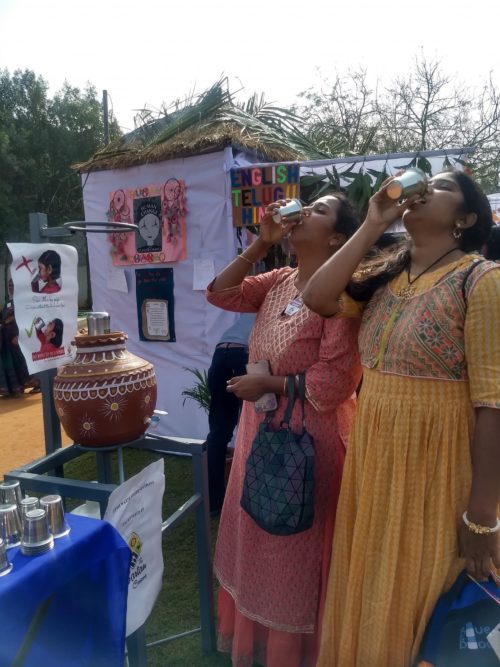Cutlery to Compost: Hyd Moms’ ‘Bartan Company’ Lets You Host Plastic-Free Parties
A community utensil bank, managed by Hyd moms provides reusable steel plates and cutlery on rent.
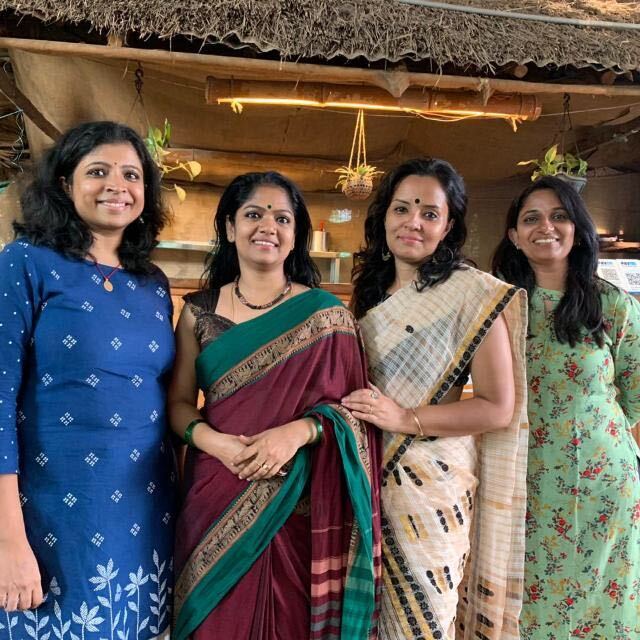
With The Positive Collective, The Better India’s COVID-19 coverage is available to regional language publications for free. Write to [email protected] for more details.
Every event leaves behind a huge trail of waste. Every disposable item, whether biodegradable or not, ends up in the landfill. This thought disturbed Nidarshana Saikia Das, a Hyderabad-based marketing professional, day and night.
“I could not enjoy myself at parties. I could only think about how the dustbins would be overflowing with use-and-throw waste,” she mentions.
So, in February 2019, Nidarshana decided to launch ‘The Bartan Company’ (TBC), a community utensil bank that provides reusable steel plates and cutlery on rent, along with three other like-minded women—Madhumita Subramaniam, Reena George, and Sushoma Nagaraj.
“During events, people opt for plastic cutlery because it is cheap and convenient to use and throw. We decided to replicate that same model with reusable steel utensils, provided at a nominal rent—which also includes helpers who will ensure post-event cleanup,” she says.
The concept of a cutlery bank was not something new to her. She had come across similar organisations in Bengaluru and Delhi while trying to rent utensils for her own events. However, she was compelled to do something of her own after attending a permaculture course at Aranya Agricultural Alternatives, an NGO, in 2018.
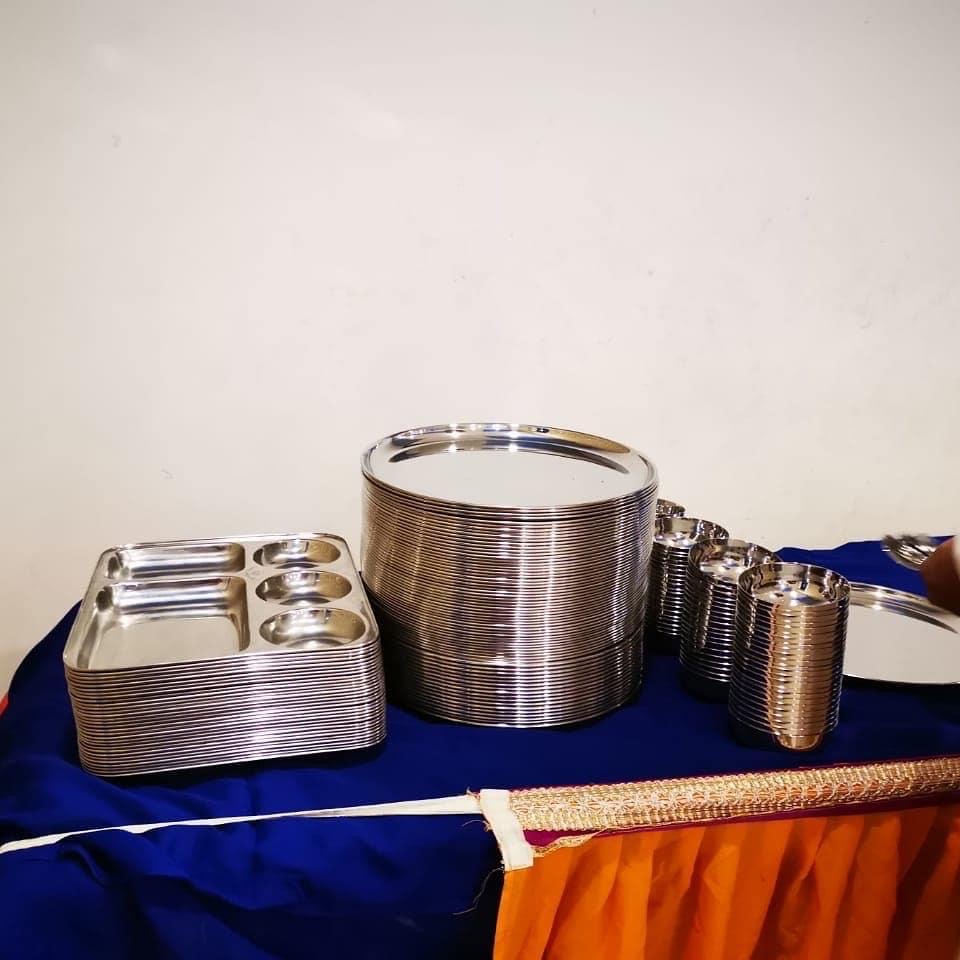
“After completing the course, I felt a compelling need to do something impactful. All I saw around me was bad waste management, and I wanted to bring a change with The Bartan Company,” says Nidarshana.
How Did She Go About Building a Utensil Bank?
First, she reached out to the residents of her society.
“The gated community where I reside has always been environmentally conscious. When I shared my idea over our WhatsApp group, I received a very positive response. Not only were individuals from the community ready to pool in money, but organisations such as Waste Ventures India stepped forward to finance the initiative. Soon, I was joined by Madhumita Subramaniam, an IT professional who was part of the same community, and together we officially launched The Bartan Company in February 2019,” says Nidarshana.
In the next few months, the duo was joined by Reena and Sushoma, volunteers from neighbouring gated-communities, who shared similar interests.
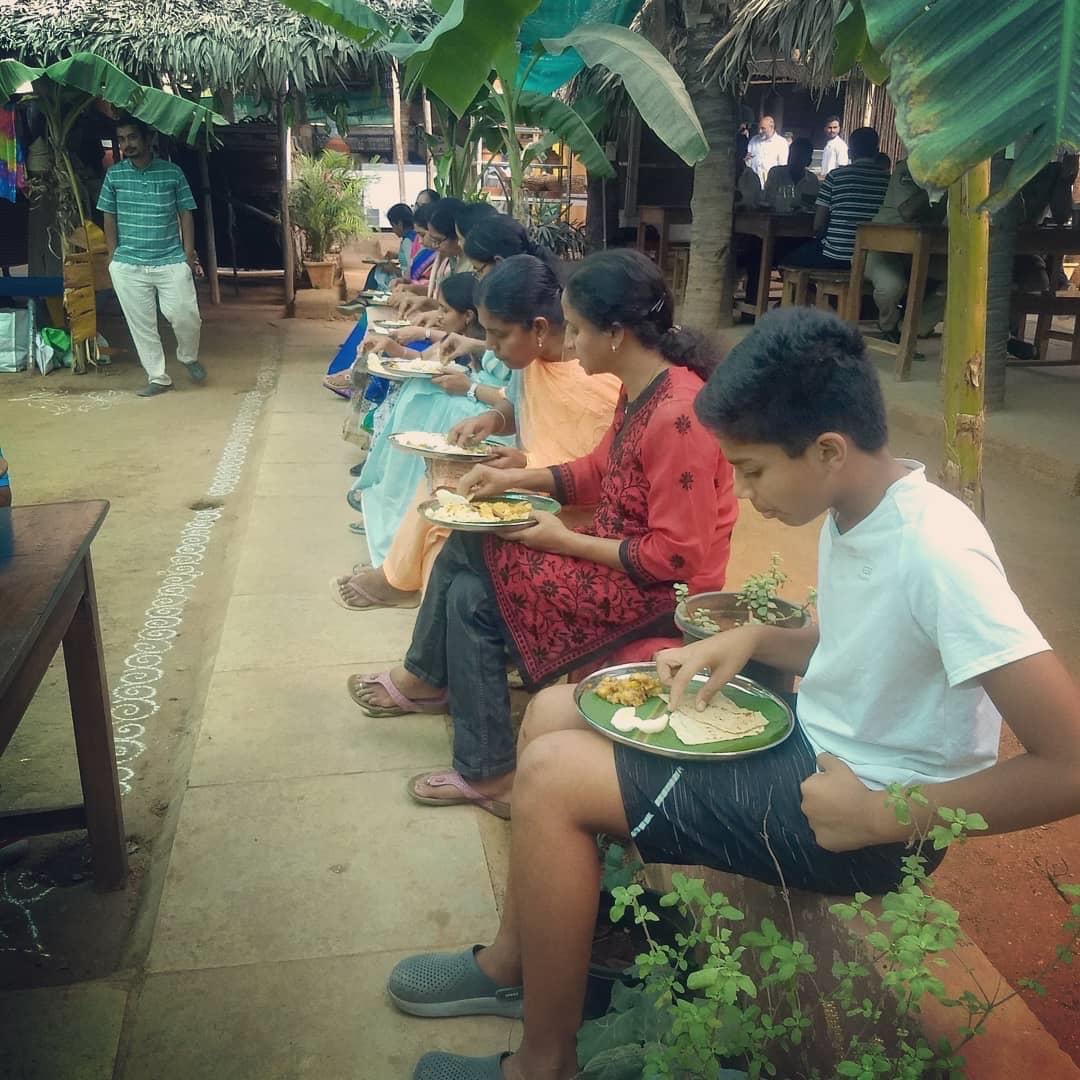
Initially, TBC catered to small gatherings in the society – 50 people or less. Soon, business picked up, and they had to handle weddings that hosted more than up to 2000 guests or more, which made them rethink their idea of using steel utensils.
“For events with a larger number of guests, using reusable steel cutlery was extremely resource-intensive. There was excessive use of water and manpower for cleaning. This went against our initiative to be socially responsible. So we introduced biodegradable plates with a condition of on-site composting,” says Nidarshana.
This quick-thinking on Madhumita’s part deserves to be appreciated because a simple switch to biodegradable products will not reduce the waste generated. Unless it is composted, it will end up in landfills along with other waste.
“With a strict policy of not sending any waste to landfills, we replaced dustbins with compost bins around the venue. Guests were asked to dispose of their plates in these bins along with a scoop of coco-peat mixed with an accelerator. The compost was ready to use within three months,” she explains.
The host can then either choose to retain the compost for their use or choose to send the wet waste to a waste management company for an agreed cost.
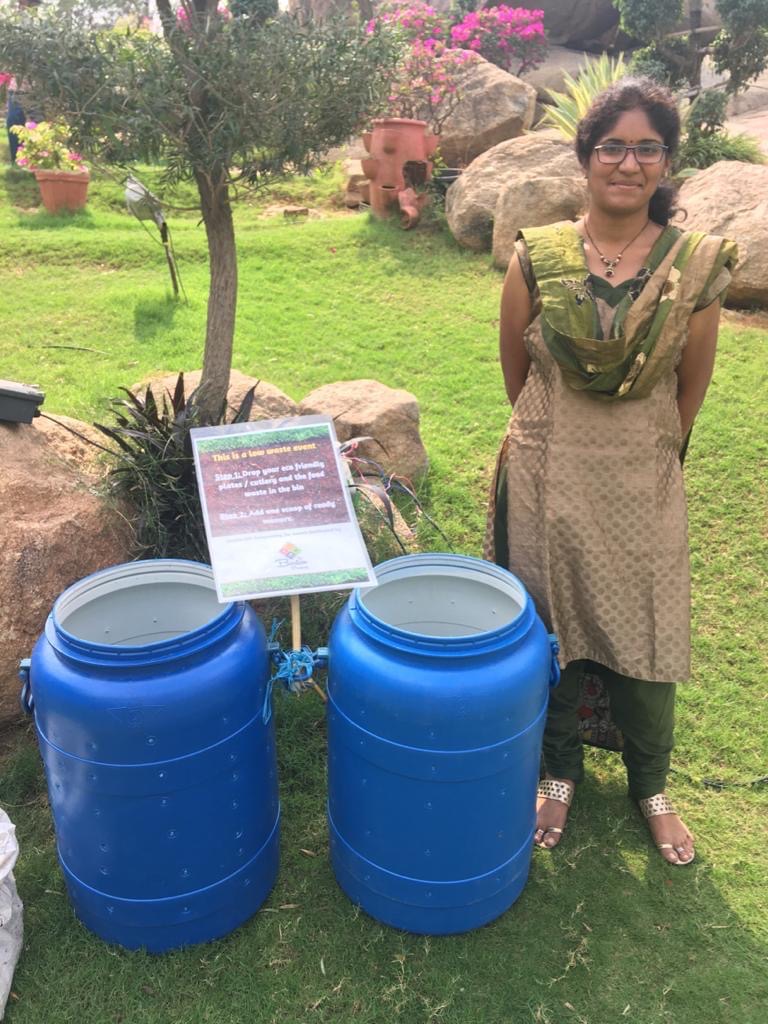
Since compost bins cannot have non-biodegradable material such as plastic-lined paper cups thrown into them, TBC ensures extensive labelling and deploys interns to stand near these bins, and help guests segregate waste the right way.
TBC has also helped many guests embark on a green journey. A user who had availed their service for an event with 100 people was surprised at the consistent quality maintained among utensils. The user also expressed how it was a great initiative for those wishing to ‘go green’.
“Many guests started reaching out to us to know more about the process of composting and were surprised to learn that it wasn’t a herculean task,” smiles Nidarshana.
‘Sar Utha Ke Peeyo’
“Taking inspiration from our ancestors, and a fellow low-waste champion, we introduced an initiative named ‘Sar Utha Ke Peeyo’ during a few events and encouraged people to drink from steel glasses, the desi way, without touching their lips. At one such event—World Bicycle Day, 2019—we could serve 2000 guests with 80 steel glasses and saved countless paper cups, and more importantly, the water that we would have otherwise used to wash all those steel glasses,” she says, adding that it was a hit among both adults and children.
While the COVID-19 pandemic has put a pause to all events, team TBC has shifted to their social media channels (Facebook and Instagram) to create awareness through short videos and posts on a gamut of topics related to sustainable living. The series on using bio enzymes is one such example.
“We are utilising this period to reinvent our business line, and working on newer ideas to enable sustainable living in urban spaces. Composting starter kits are among the product ideas getting brewed,” says Nidarshana.
In the future, TBC plans to collaborate with eco friendly gifting providers, venue decorators, organic food vendors and so on to offer an all-round low-waste event package.
(Edited by Gayatri Mishra)
Like this story? Or have something to share?
Write to us: [email protected]
Connect with us on Facebook and Twitter.
If you found our stories insightful, informative, or even just enjoyable, we invite you to consider making a voluntary payment to support the work we do at The Better India. Your contribution helps us continue producing quality content that educates, inspires, and drives positive change.
Choose one of the payment options below for your contribution-
By paying for the stories you value, you directly contribute to sustaining our efforts focused on making a difference in the world. Together, let’s ensure that impactful stories continue to be told and shared, enriching lives and communities alike.
Thank you for your support. Here are some frequently asked questions you might find helpful to know why you are contributing?


This story made me
-
97
-
121
-
89
-
167



